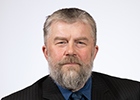Eesti Reformierakonna fraktsiooni algatatud olulise tähtsusega riikliku küsimuse "Eesti energeetika tulevik 2035" arutelu
Istung: XV Riigikogu, III istungjärk, täiskogu istung
Kuupäev: 2024-03-07 12:03
Sõnavõtte kokku: 159
Koosseis: 15
Päevakorra kestus: 3h 40m
AI kokkuvõtted: 159/159 Sõnavõtud (100.0%)
Analysis: Structured Analysis
Poliitikute Kõneaeg
Poliitikud
Analüüs
Kokkuvõte
Riigikogus peeti Reformierakonna fraktsiooni algatusel olulise tähtsusega riikliku küsimuse arutelu "Eesti energeetika tulevik 2035". Arutelu keskendus Eesti ambitsioonikale eesmärgile saavutada 2030. aastaks 100% taastuvelektrit, tagada varustuskindlus ning luua puhas energia majanduse konkurentsieelisena. Kliimaminister Kristen Michal tutvustas valitsuse plaani viia läbi suured taastuvenergia vähempakkumised (kokku 8 TWh tuuleenergiat) ning rõhutas, et see plaan on tarbijatele soodsam kui varasemad alternatiivid, kuna arvestab riigisisest tarbimist. Lisaks käsitleti juhitavate võimsuste, salvestustehnoloogiate ja elektrivõrkude arendamise vajadust, eriti seoses Mandri-Euroopaga sünkroniseerimisega 2025. aastal.
Eksperdid (Priit Mändmaa ja Kalle Kilk) kinnitasid, et suurem elektritarbimine, eriti energiaintensiivse tööstuse lisandumisel, aitab langetada võrgutasusid ja parandada Eesti positsiooni globaalses energia trilemmas. Debatis kerkis esile tuumaenergeetika roll pikas plaanis ja põlevkivienergeetika säilitamise küsimus reservvõimsusena. Opositsioon kritiseeris valitsuse plaani eeskätt selle kõrge potentsiaalse maksumuse (meretuuleparkide subsideerimine) ja varustuskindluse tagamise ebaselguse tõttu, eriti arvestades välisühenduste ja merekaablite julgeolekuriske. Samuti seati kahtluse alla rohepöörde positiivne majanduslik mõju võrreldes USA-ga.
Tehtud otsused 1
Istungi juhataja ettepanekul pikendati istungit päevakorrapunkti ammendumiseni, kuid mitte kauem kui kella 14:00-ni. Ettepaneku poolt hääletas 32 Riigikogu liiget.
Aktiivseimkõneleja
Kõige aktiivsem esineja oli Eesti Konservatiivse Rahvaerakonna fraktsiooni liige Rain Epler, kes esitas mitu küsimust ja pidas fraktsiooni nimel sõnavõtu. Epler kritiseeris teravalt valitsuse taastuvenergia plaani, seades kahtluse alla selle majandusliku põhjendatuse ja varustuskindluse tagamise. Ta juhtis tähelepanu vastuoludele ametnike ja ekspertide esitatud andmetes (nt võrguarenduse maksumus) ning rõhutas vajadust säilitada põlevkivi juhitava võimsusena kuni tuumaenergia kasutuselevõtuni.
Esimees Lauri Hussar
AI kokkuvõte
Esimees Lauri Hussar teatas, et Reformierakonna fraktsiooni algatatud olulise tähtsusega riikliku küsimuse „Eesti energeetika tulevik 2035“ arutelu korralduses on neli ettekannet (kliimaminister Kristen Michal, Priit Mändmaa, Kalle Kilk ja Andres Sutt), iga ettekanne kuni 20 minutit ning küsimuste voor kuni 20 minutit ning kuni kaks küsimust Riigikogu liikmelt, arutelu algataja soovib eelistatult fraktsioonide esindajate sõnavõtte ning vajadusel võib istungi pikendada kuni kella 14-ni kui 13.00ks ei jõuta, ja ta kutsus esimeseks kõneks kliimaministrit Kristen Michalit.
Kliimaminister Kristen Michal
AI kokkuvõte
Kliimaminister Kristen Michal ütles, et Eesti liigub puhta energia suunas, suurendab taastuvenergia—eelkõige tuuleenergia—osakaalu, seab eesmärgiks, et riigi tarbitav elekter tuleb täielikult taastuvatest allikatest, ning kasutab konkurentsi, salvestust ja pikaajalisi lepinguid, et tarbimise ja tootjate huvid kattuksid, plaanides vähempakkumised 2025, maismaatuule esiletõusu 2029 ja meretuule järgnevaid etappe, mis tagavad majanduskasvu, tarbijate stabiilsuse ja ekspordi võimalused.
Aseesimees Jüri Ratas
AI kokkuvõte
Aseesimees Jüri Ratas teavitas, et kuulajatel on veel 11 minutit ja 55 sekundit aega.
Kliimaminister Kristen Michal
AI kokkuvõte
Kõne väljendas heameelt ja tänu.
Aseesimees Jüri Ratas
AI kokkuvõte
Ta küsib, kas see on piisav, ning vajadusel pikendame aega kokkuleppel.
Kliimaminister Kristen Michal
AI kokkuvõte
Kliimaminister Kristen Michal rõhutab, et juhitavad võimsused on energiasüsteemi tasakaalu jaoks kriitilised ning nende tagamiseks kasutatakse Narva plokke ja võimalikke strateegilise reservi või sagedusreservi lahendusi, nähakse gaasivõimsuste lisamist, arutatakse tuumaenergeetika võimalust ning töös on Mandri-Euroopaga sünkroniseerimine, uued välisühendused Soomega ja Lätiga ning potentsiaalsed ühendused Saksamaaga ja vesiniku arendamine.
Aseesimees Jüri Ratas
AI kokkuvõte
Aseesimees Jüri Ratas ütles, et kõne kestab kuus ja pool minutit, ning vabandas, et tehniline süsteem ei näita seda.
Kliimaminister Kristen Michal
AI kokkuvõte
Kliimaminister Kristen Michal tänab kuulajaid ning kinnitab, et see ei näita midagi.
Aseesimees Jüri Ratas
AI kokkuvõte
Ratas lubab anda teile infot operatiivselt.
Kliimaminister Kristen Michal
AI kokkuvõte
Ettekanne rõhutab, et Eesti tagab julgeoleku ja varustuskindluse, kasvatab tootmiskapasiteeti juhtivate võimsuste ja puhta energia abil ning sünkroniseerib end mandri-Euroopa sagedusalaga, desünkroniseerides Venemaa, hoiab elektrihinna taskukohasena ning loob eksportvõimalused, ning kutsub arutlema tuumaenergia, kiirete tootmiste ja investeeringute üle ning küsima, kas me lõpuks teeme midagi?
Aseesimees Jüri Ratas
AI kokkuvõte
Jüri Ratas tänab ministrit, kuulutab algavaks 20-minutilise küsimuste ja vastuste vooru ning kutsub Urmas Kruuse’i alustama.

Urmas Kruuse
Profiileerimine Eesti Reformierakonna fraktsioonAI kokkuvõte
Urmas Kruuse küsis ministrilt biogaasi perspektiivi kohta, tuues Eesti võimekusena kuni ühe teravatti toota (praegu umbes 0,24–0,30 TW) ja küsides, kas see hõlmab gaasijaamu ja tippude katmist või juhitavaid energiaallikaid ning kas Euroopa jagab meie nägemust biogaasi arendamisest või oleme selles mõttes üksi.
Kliimaminister Kristen Michal
AI kokkuvõte
Kliimaminister Kristen Michal ütles, et biogaasil on oma koht energeetikas ning selle kasutus võiks tulevikus kasvada, pakkudes väiksema jalajäljega alternatiivi nii ühistranspordis kui laiemas energiakasutuses, kuigi debatt keskendub suuresti transportile ja põllumajandusele.
Aseesimees Jüri Ratas
AI kokkuvõte
Aseesimees Jüri Ratas palus Urve Tiidust sõna võtma.

Urve Tiidus
Profiileerimine Eesti Reformierakonna fraktsioonAI kokkuvõte
Urve Tiidus palus ministril laiendada ideed taastuvenergia osakaalu suurendamisest Eestis ja selgitada, kelle poole pöörduda ning kellele lobida, et meelitada rohkem tarbijaid.
Kliimaminister Kristen Michal
AI kokkuvõte
Taastuvenergeetika arenduse võtmeteguriks on tarbimise kasv, ja kui Eesti majandus laieneb puhtamal viisil ning ekspordivõimelisena, vajab see rohkem tarbimist ning ettevõtted võivad MKM-i või EISA kaudu tutvuda Eestis pakutavate arenguvõimalustega puhta energia ja eksporti silmas pidades.
Aseesimees Jüri Ratas
AI kokkuvõte
Aseesimees Jüri Ratas kutsus Mario Kadastikut esinema.

Mario Kadastik
Profiileerimine Fraktsiooni mittekuuluvad Riigikogu liikmedAI kokkuvõte
Mario Kadastik rõhutas, et tulevikus on kaalutud nii gaas+tuum kui ka ainult gaas ning küsis, millised valikud on, kui tuumajaama ei ehitata või see hilineb, ning kas biogaas tagaks varustuskindluse, arvestades, et gaas 2040. aastaks võib fossiilse energia tõttu muutuda ebasoodsaks.
Kliimaminister Kristen Michal
AI kokkuvõte
Kliimaminister Kristen Michal ütles, et kuigi tuumaenergia otsus pole vältimatu, on vaja selget ja õigeaegselt langetatud otsust tuumaenergia osas ning et jaama valik ja ehitus võib võtta 9–20 aastat, seetõttu tuleb vajadusel jälgida turu arengut ja süsteemihalduri hinnanguid ning kaaluda alternatiivseid mehhanisme, ning Riigikogu peaks selle teema sel hooajal lõpuks läbi arutama.
Aseesimees Jüri Ratas
AI kokkuvõte
Aseesimees Jüri Ratas kutsub Priit Lomp lavale.
Priit Lomp
AI kokkuvõte
Priit Lomp kiidab taastuvenergia edusamme, kuid küsib selle taga olevat „maagilist” kahe–kolme miljardit ning toob Baltikumist näite oksjonihindadest 64–107 eurot megavatt-tunni kohta ning Leedust 193 miljonit eurot CFD‑le 15-aastase perioodi eest, ning küsib, kelle huve see tegelikult teenib — põlevkivientusiastide, nostalgikute või ümarpuidu põletajate omi.
Kliimaminister Kristen Michal
AI kokkuvõte
Kliimaminister Kristen Michal kinnitas, et plaan on ühislooming ning eesmärk on taastuvenergia kasvatamine ning odavama elektri hinna tagamine inimestele ja ettevõtetele, hoolimata erinevatest numbritest ja nende tõlgendustest.
Aseesimees Jüri Ratas
AI kokkuvõte
Aseesimees Jüri Ratas palub Jaak Aabi astuda ette.

Jaak Aab
Profiileerimine Fraktsiooni mittekuuluvad Riigikogu liikmedAI kokkuvõte
Jaak Aab esitas ministrile küsimuse, kuidas 2030. aastaks kavandatud 100% taastuvenergia eesmärgi kontekstis hinnata võrkude arendamist ja võrgutasu mõju tarbijale ning ettevõtjale, küsides, kui palju neid võrke tuleb juurde (ligikaudu 2500 MW võrreldes praeguse umbes 3000 MWga) ja kui suur see tasu võiks olla.
Kliimaminister Kristen Michal
AI kokkuvõte
Kliimaminister Kristen Michal ütles, et võrkudesse tuleb investeerida ning muuta need ilmastikukindlamaks nii jaotus- kui põhivõrkude ühenduste pidamiseks, ning kuigi taastuvenergia tulekuks mõeldud kulu on Kasemetsa sõnul umbes 360 miljonit, pole see arvestatavalt suur võrreldes ülejäänud arenduste ja võrkude kuludega.
Aseesimees Jüri Ratas
AI kokkuvõte
Aseesimees Jüri Ratas palub Kristina Šmigun-Vähi tulla lavale.

Kristina Šmigun-Vähi
Profiileerimine Eesti Reformierakonna fraktsioonAI kokkuvõte
Kristina Šmigun-Vähi ütles, et Eesti inimesed maksavad elektri eest rohkem kui põhjamaad, sest põhjamaad on õigel ajal investeerinud taastuvenergiasse ning naaber Soome on hiljuti tuumajaama valmis saanud, ning kuigi elektritootmise lahenduste loomine ise võtab aastaid aega, oleks kiirem ja odavam lahendus lubada väljastpoolt Eestit pärit väikeettevõtjatel toota elektrit oma küla tarbeks.
Kliimaminister Kristen Michal
AI kokkuvõte
Ta rõhutab, et kuldkätega võivad olla ka naised ning ei tohi eeldada, et need on ainult mehed.
Aseesimees Jüri Ratas
AI kokkuvõte
Ratas kiitis, et te ütlesite seda õigesti.
Kliimaminister Kristen Michal
AI kokkuvõte
Kliimaminister Kristen Michal ütles, et Eestis kasvab hajutatud taastuvenergia – näiteks kodumajapidamiste päikesepaneelide paigaldamine on tasuv – ning uute taastuvenergia parkide rajamine on lubatud avaliku huvi alusel, mis toob kasu naabruskonnale ja kohalikele tarbijatele.
Aseesimees Jüri Ratas
AI kokkuvõte
Aseesimees Jüri Ratas palub Rene Kokk võtta sõna.

Rene Kokk
Profiileerimine Eesti Konservatiivse Rahvaerakonna fraktsioonAI kokkuvõte
Rene Kokk esitas küsimused Kliimaministeeriumi plaani kohta tuumaenergia jaoks Eestis, millal see võiks reaalselt liinidesse jõuda, millal Riigikogu saab hakata arutama tuumaenergia eluvõimaluse andmist ning kas ja kuidas hoitakse ning tagatakse põlevkivivarude kasutamine energia tootmiseks nii kaua, kui vaja on.
Kliimaminister Kristen Michal
AI kokkuvõte
Ettekanne toob välja kaks võimalust varude hoidmiseks – Eesti Energia või Leedu variant – ning rõhutab, et tuumaenergia võiks Eestis tekkida alles põhjaliku ja teadmistepõhise debati ning ettevalmistuse järel, parimal juhul 9–11 aastat otsusest, halvimal juhul 10–20 aastat, mille järel see võiks müüa toodangut regionaalsesse võrku; kogu arutelu peaks olema teadmistepõhine ja emotsioonivaba.
Aseesimees Jüri Ratas
AI kokkuvõte
Aseesimees kutsus Margit Sutropi kõnelema.

Margit Sutrop
Profiileerimine Eesti Reformierakonna fraktsioonAI kokkuvõte
Margit Sutrop esitab taastuvenergiale ülemineku kontekstis keskse probleemi – kuidas stabiliseerida tuule- ja päikeseenergia voogusid nii, et need ei tekitaks ülekandevõrkudes probleeme ja tagaksid energia kättesaadavuse kriiside ajal – ning kui kaugele on arenenud salvestustehnoloogiad ning millised kaalutlused on julgeoleku osas.
Kliimaminister Kristen Michal
AI kokkuvõte
Kliimaminister Kristen Michal ütles, et Eestis arenevad energiasalvestuslahendused, sealhulgas Evecon koos Corsica Solega ja Energiasalv ning vesiniksalvestus, mis tasakaalustavad hinda ja avavad turule uusi võimalusi, kuid kriitiliste või pikemate vajaduste katmiseks on vaja ka juhitavaid võimsusi ning igal tehnoloogial on oma koht.
Aseesimees Jüri Ratas
AI kokkuvõte
Jüri Ratas palub Anti Allasele esitada kiire küsimus ja anda kiire vastus.

Anti Allas
Profiileerimine Fraktsiooni mittekuuluvad Riigikogu liikmedAI kokkuvõte
Anti Allas tänab valitsust kaugeleulatuvate otsuste tegemise eest ning küsib, millistest faktoristest sõltub vähempakkumise väljakuulutamise aeg ning kuidas tagada tarbijale võimalikult taskukohane tulemus ning millist lisainfot ja eelnevaid otsuseid on selleks vaja.
Kliimaminister Kristen Michal
AI kokkuvõte
Kui lühidalt öelda, sõltub tempo suuresti Euroopa Komisjoni riigiabi menetluse kulgemisest, peame läbi arutama riigisisese võimaluse — sest alternatiiv oleks teha väiksemas mahus ja mitte arvestada riigisisest tarbimist — ning edasine kiirus sõltub Komisjoniga suhtlusest ning sellest, kui täpselt ja kiiresti suudame riigisisese tarbimise defineerida ja milline on tehniline ettevalmistus.
Aseesimees Jüri Ratas
AI kokkuvõte
Jüri Ratas tänas ministrit ettekande ja vastuste eest ning tegi Priit Mändmaale, Maailma Energeetikanõukogu Eesti Rahvuskomitee peasekretäri, Riigikogu kõnetooli ettekandjaks, ning andis talle 20 minuti ettekandeks.
Maailma Energeetikanõukogu Eesti Rahvuskomitee peasekretär Priit Mändmaa
AI kokkuvõte
Priit Mändmaa rõhutas, et Eesti energeetika peab tarbimise poole keskendudes tagama tasakaalu kolme indikaatori vahel — varustuskindluse, taskukohasuse ja keskkonnasäästlikkuse — et majandus püsiks ja elatustase oleks kõrge.
Aseesimees Jüri Ratas
AI kokkuvõte
Riigikogu aseesimees Jüri Ratas tervitas Armeenia parlamendi esimeest, härra Alen Simonjani, ja soovis talle Riigikogus teretulekut.
Maailma Energeetikanõukogu Eesti Rahvuskomitee peasekretär Priit Mändmaa
AI kokkuvõte
Ta tervitab publikut ja jätkab oma kõnega.
Aseesimees Jüri Ratas
AI kokkuvõte
Kõnes öeldakse, et on lehvitatud ja tervitatud ning nüüd liigume edasi.
Maailma Energeetikanõukogu Eesti Rahvuskomitee peasekretär Priit Mändmaa
AI kokkuvõte
Priit Mändmaa ütles, et Eesti saavutas trilemmauuringus 9. koha, mis peegeldab paranenud varustuskindlust, taskukohasust ja keskkonnasäästlikkust, ning kuigi 2023. aasta raport lükati edasi World Energy Congressi tõttu, on eesmärgiks tagada võrgukvaliteet ja konkurentsivõime ning tuua riiki kõrgtehnoloogiline energiaintensiivne tööstus lisandväärtusega.
Aseesimees Jüri Ratas
AI kokkuvõte
Ta vastas lühidalt jaatavalt ning ütles: „Muidugi. Palun!”
Maailma Energeetikanõukogu Eesti Rahvuskomitee peasekretär Priit Mändmaa
AI kokkuvõte
Kokkuvõttes väidab kõne, et kümne aasta pärast võiks meil olla 100 000 elektrisõidukit ning nende tarbimine koos puidu väärindamise tehase ja andmekeskuste vajadustega nõuab ühiskondlikku kokkulepet, milles tavatarbija panustab konkurentsivõimelise keskkonna loomisesse, et ettevõtted saaksid kasvada, tekiks rohkem töökohti ja parem elatustase, ning energiasüsteem oleks jätkusuutlik ja vastaks energia-trilemma põhimõtetele.
Aseesimees Jüri Ratas
AI kokkuvõte
Aseesimees Jüri Ratas tänas ettekandjat, teavitas, et küsimuste ja vastuste voor kestab kuni 20 minutit, ning kutsus Urmas Kruuse.

Urmas Kruuse
Profiileerimine Eesti Reformierakonna fraktsioonAI kokkuvõte
Vene agressioon Ukrainas on pannud kogu Euroopa energiapoliitika põhjalikult üle vaatama ning riigid mõtlevad riskide maandamise üle ja küsivad, kas me ei investeeriks liigset energiatootmisse ning kas on olemas institutsioonid, mis neid riske teadvustavad või neutraliseerivad.
Maailma Energeetikanõukogu Eesti Rahvuskomitee peasekretär Priit Mändmaa
AI kokkuvõte
Maailmas on kliimaneutraalsuse saavutamiseks vajaminevatest investeeringutest umbes kolm neljandikku puudu, seetõttu lähiaastatel ei paista taastuvenergia üleküllus ning kuigi pärast 2050. aastat võib risk tekkida ja veetaseme languse tõttu on hüdroenergia keerulisem, on oluline, et tuulepargid ja muud taastuvad energialahendused pakuksid konkurentsivõimelist hinda ning aitaksid tarbimist.
Aseesimees Jüri Ratas
AI kokkuvõte
Aseesimees Jüri Ratas kutsub Igor Taro lavale.
Igor Taro
AI kokkuvõte
Ta küsis, kas majanduse ja heaolu kasv on võimalik eraldada energiatarbimise kasvust.
Maailma Energeetikanõukogu Eesti Rahvuskomitee peasekretär Priit Mändmaa
AI kokkuvõte
Ta selgitab, et ajalooliselt majanduskasv ja energiatarbimine käivad käsikäes ning kuigi energiatõhusus on oluline pöördepunkt, mis võib suunda muuta, jääb üldine tõdemus, et jõukus ja energiatarbimine on tihedalt seotud.

Lauri Laats
Profiileerimine Eesti Keskerakonna fraktsioonAI kokkuvõte
Belgia keskpanga juht ütles veebruarikuus, et rohepööre ei tee meist rikkamaks ega suurenda Euroopa SKP-d ega miljoneid hästi tasustatud töökohti, ning süsinikuheitmete maksustamine ja roheliste energiaallikate hind muudavad Euroopa energiahinnad viie–kaheksa korda kallimaks kui USA-s.
Aseesimees Jüri Ratas
AI kokkuvõte
Aseesimees Jüri Ratas kutsub Lauri Laatsi lavale.
Maailma Energeetikanõukogu Eesti Rahvuskomitee peasekretär Priit Mändmaa
AI kokkuvõte
Priit Mändmaa rõhutab, et alternatiiv tuleb leida ning kliimaneutraalsuse teekond toob muutusi, mida tuleb teha tasakaalustatult ja ettevõtjate huvide kaitsega, sest kliimamuutuste mõjud on juba kohal ja seetõttu on vaja samme.

Yoko Alender
Profiileerimine Eesti Reformierakonna fraktsioonAI kokkuvõte
Yoko Alender rõhutas heaolu ja energiamahukate ettevõtete vahelise seose tähtsust, soovides, et see sõnum jõuaks ühiskonnas laiemalt kohale, ning küsis, miks igaüks peaks sellest aru saama ja panustama ning kas suurem tarbimine võib mõjutada elektriarve ühiku hinda ning kuidas see seos üldse toimib.
Aseesimees Jüri Ratas
AI kokkuvõte
Aseesimees Jüri Ratas kutsus Yoko Alenderi üles kõnelema.
Maailma Energeetikanõukogu Eesti Rahvuskomitee peasekretär Priit Mändmaa
AI kokkuvõte
Et katta hajutatud jaotusvõrgu püsikulud ja alandada võrgutasu, tuleb suurendada elektrienergia tarbimise mahtu ning leida ühiskondlik kokkulepe, kas tarbija on valmis maksma kõrgemat ühikuhinda konkurentsivõime ja elatustaseme kasvatamiseks.
Aseesimees Jüri Ratas
AI kokkuvõte
Kõne alguses palutakse lavale Urve Tiidus.

Urve Tiidus
Profiileerimine Eesti Reformierakonna fraktsioonAI kokkuvõte
Urve Tiidus tänas juhatajat ja Priit Mändmaad ning palus anda mõne hea näite Maailma Energeetikanõukogu tööst, rõhutades organisatsiooni 101-aastast tegutsemist ning andmete rohkusest ja riikidevahelise võrdluse olulisust.
Maailma Energeetikanõukogu Eesti Rahvuskomitee peasekretär Priit Mändmaa
AI kokkuvõte
Infovahetus ja koostöö on ajalooliselt lahendanud mitmeid küsimusi ning Maailma Energeetikanõukogu on suutnud säilitada apoliitilise positsiooni, koondada ja jagada parimaid kogemusi ning tagada energiasüsteemide toimimise ka keerulistel hetkedel, ning täna võimalustab see diskussiooni poliitika kujundajate, ettevõtjate, MTÜ-de ja aktivistide vahel, et üksteiselt õppides ning parimaid tavasid jagades kliimaneutraalsuse eesmärk saavutada lihtsamalt ja kiiremini.
Aseesimees Jüri Ratas
AI kokkuvõte
Kõneleja kutsus lavale Annely Akkermanni.

Annely Akkermann
Profiileerimine Eesti Reformierakonna fraktsioonAI kokkuvõte
Annely Akkermann küsis kaks teemad: millised on energiaturgude vabaduse ja riigi toetusest sõltuvate turgude tulevikutrendid ning kas hajatootmine ja majapidamiste enda elektritootmine koos kalli võrguga arenevad edasi samal ajal kui suurtootmise viisid liiguvad üha lähemale.
Maailma Energeetikanõukogu Eesti Rahvuskomitee peasekretär Priit Mändmaa
AI kokkuvõte
Priit Mändmaa ütles, et kliimaneutraalsuse saavutamiseks on vaja tarbijate kaasamist ja energeetilise kirjaoskuse suurendamist ning julgustada koduseid investeeringuid energia tootmisse ja salvestamisse, sest elektriautode arvu kasv ja nende akupankade kasutuselevõtt teedel võiks luua märkimisväärse salvestusvõimsuse.
Aseesimees Jüri Ratas
AI kokkuvõte
Aseesimees Jüri Ratas palub Rain Epleril sõna võtta.

Rain Epler
Profiileerimine Fraktsiooni mittekuuluvad Riigikogu liikmedAI kokkuvõte
Rain Epler kritiseerib ideed, et tehased püstitatakse kohtades, kus on piisav elektrivarustus ja mis ei sõltu ilmastikust, ning seejärel toodetakse energiat meretuuleparkide jaoks—tema sõnul on see tagurpidi mõtlemine.
Maailma Energeetikanõukogu Eesti Rahvuskomitee peasekretär Priit Mändmaa
AI kokkuvõte
Priit Mändmaa sõnul peaksid need asjad liikuma paralleelselt või tootmine võiks olla ees ja tarbimine järel ning kui need saavad kokku, on see parem, kuid see nõuab erakordselt head läbirääkimisoskust, riigi võimekuse esiletõstmist ja usaldust.
Aseesimees Jüri Ratas
AI kokkuvõte
Kõne on lihtsalt palve Anti Poolametsale.

Anti Poolamets
Profiileerimine Eesti Konservatiivse Rahvaerakonna fraktsioonAI kokkuvõte
Anti Poolamets rõhutab, et kuigi taastuvenergia ideed on ilusad, ei kanna praegused kõikumised päikese- ja tuuleenergia välja ilma stabiilse varu ning ulatusliku salvestustehnoloogia ja suurte investeeringuteta, ning ta küsib, kui kalliks see lõpuks läheb ning kas meil tuleb rajada Paldiski reservuaar või elada külade serval päikesepaneelide peal.
Maailma Energeetikanõukogu Eesti Rahvuskomitee peasekretär Priit Mändmaa
AI kokkuvõte
Ettekande peamine sõnum oli tarbimise vaatevinkli rõhutamine, kuid me oleme teekonna alguses ning Põhjala regioonis on 53 000 MW hüdrovõimsust, mida hüdropargid võivad salvestina kasutada ning pika vaate ja turumuutuste korral võivad need muutuda reaalseks juhitavaks energiaks.
Aseesimees Jüri Ratas
AI kokkuvõte
Aseesimees Jüri Ratas kutsub Mario Kadastikut kõnelema.

Mario Kadastik
Profiileerimine Fraktsiooni mittekuuluvad Riigikogu liikmedAI kokkuvõte
Ta küsib, milline kolmest energiakomponendist—hinnast, varustuskindlusest ja keskkonnasäästust—tõenäoliselt parandab Eesti energiatrilemma kohta, kui hind on lõpus, ning kas paranemine tuleb peamiselt keskkonnasäästu poolt või kuskilt mujalt, viidates Riigikontrolli auditi varustuskindluse tulemusele.
Maailma Energeetikanõukogu Eesti Rahvuskomitee peasekretär Priit Mändmaa
AI kokkuvõte
Ta märkis, et tulemused on dünaamilised ja arvestavad ka teistes riikides toimuvat ning lõppväärtus pole fikseeritud 105, vaid muutub kogu valimi tulemuste põhjal; kui on 127 riiki, määravad nende tulemuste põhjal parima tulemuse.
Aseesimees Jüri Ratas
AI kokkuvõte
Aseesimees Jüri Ratas tervitas Mait Klaasseni ja palus lühikest küsimust ning kiiret vastust.

Mait Klaassen
Profiileerimine Eesti Reformierakonna fraktsioonAI kokkuvõte
Ta küsib ülevaate, kas mõni teine metsane põhjamaa piirkond on, kus elektriliinid ei ole kaablitesse paigutatud, et vältida katkestusi, sest tarbijad soovivad 24/7 energiavarustust.
Maailma Energeetikanõukogu Eesti Rahvuskomitee peasekretär Priit Mändmaa
AI kokkuvõte
Ta rõhutab, et kuigi tal ei ole konkreetset vastust, on põhjendatud oodata kaugele keskusest kolinud inimeselt paindlikkust võrguinvesteeringute kõrgete kulude tõttu, vastasel juhul tuleb kulud katta.
Aseesimees Jüri Ratas
AI kokkuvõte
Ettekandja tänab ettekande ja vastuste eest ning palub nüüd Riigikogu kõnetooli Elering AS-i juhatuse esimehe Kalle Kilgi esinemist, milleks on kuni 20 minutit ettekandeks ja küsimusteks-vastusteks.
Elering AS-i juhatuse esimees Kalle Kilk
AI kokkuvõte
Ettekandes rõhutas Kalle Kilk, et Eesti varustuskindlus nõuab suuremat ja paremini ühendatud elektrivõrku Euroopaga, mis võimaldab eksporti ja kriitilistel hetkedel importi, ning selle saavutamiseks tuleb kiiresti rajada Estlink3 ja Eesti-Läti neljas ühendus, suurendada kohalikku tuule- ja päikesetoodangut ning rakendada kolmesammulist varustuskindluse mudelit, mis ühendab enda odavad elektrijaamad, välisühendused ja varujaamad.
Aseesimees Jüri Ratas
AI kokkuvõte
Aseesimees Jüri Ratas tänab ettekandjat, teatab 20-minutilise küsimuste-vastuste vooru ning kutsub taas Urmas Kruuse, märkides, et too on olnud kõigil kolmel korral esimene.

Urmas Kruuse
Profiileerimine Eesti Reformierakonna fraktsioonAI kokkuvõte
Urmas Kruuse rõhutas, et gaasijaamad on süsteemi jaoks mobiilsed ja hädavajalikud tiputarbimise ning varustuskindluse tagamisel, kuid gaas kui vara ei ole pikas perspektiivis väga positiivne ning kui taastuvenergia laieneb ja gaasijaamad töötavad vaid vähesel määral aastas, tekib küsimus kliima- ja julgeolekuküsimuste kaalust ning kas gaasihinna tõus võib selle mõju kõrvale jätta.
Aseesimees Jüri Ratas
AI kokkuvõte
Küsija aeg on nüüd käes.
Elering AS-i juhatuse esimees Kalle Kilk
AI kokkuvõte
Kalle Kilk ütles, et kuigi fossiilne gaas väheneb, on gaasielektrijaamad tulevikukindlad, kuna nad sobivad biogaasi ja isegi vesiniku kasutamiseks ning neid on võimalik odavalt ümber ehitada, mida illustreerib Kiisa 250 MW jaam.
Aseesimees Jüri Ratas
AI kokkuvõte
Jüri Ratas kutsub Rain Eplerit kõnelema.

Rain Epler
Profiileerimine Fraktsiooni mittekuuluvad Riigikogu liikmedAI kokkuvõte
Rain Epler tõi esile Eesti-Läti neljanda ühenduse teema, märkides slaididel 500 MW ja majanduskomisjonis kõneldud 1000 MW vahet, küsis nime tähenduse ning kas Elering kavatseb rahastada ühendust osaliselt või tervenisti selle ülekoormustasuga, mida Elering igapäevaselt teenib.
Elering AS-i juhatuse esimees Kalle Kilk
AI kokkuvõte
Juhatuse esimees Kalle Kilk selgitab, et vahelduvvõrkudel ei määra koguvõimsust lihtsalt liinide summa, vaid tegelik võimsus sõltub termilisest läbilaskevõimest ja kõrvalkoormustest ning seetõttu on ülekoormusmaksed turu jaoks ning 2033–2034 aasta jooksul kogutav summa peaks katma Estlink 3 ja Eesti-Läti neljanda liini investeeringu 50%, ülejäänu loodetakse saada Euroopa Liidult.
Aseesimees Jüri Ratas
AI kokkuvõte
Aseesimees Jüri Ratas kutsus Mario Kadastikut kõnelema.

Mario Kadastik
Profiileerimine Fraktsiooni mittekuuluvad Riigikogu liikmedAI kokkuvõte
Räägitakse Estlink 2‑st, mis on pikalt maas, ning küsitakse, kas võiks arendada kohaliku kompetentsi selle parandamiseks varustuskindluse nimel, ning kas on tehtud prognoose ja mudeleid stsenaariumide kohta, kus tuumaenergia ja Ida-Virumaa plaanid vähendaksid võrguinvesteeringute mahtu.
Elering AS-i juhatuse esimees Kalle Kilk
AI kokkuvõte
Juhatuse esimees Kalle Kilk ütles, et varustuskindluse tagamiseks tuleb vähendada sõltuvust ühest elemendist, parandada kaabliremondimeeskondade valmisolekut ning suurendada eraldi välisühenduste ja kohapealse elektritootmise rolli, ning tuumajaama asukohad Eestis on uuringute kohaselt teostatavad.
Aseesimees Jüri Ratas
AI kokkuvõte
Aseesimees Jüri Ratas palub Urve Tiidust võtta sõna.

Urve Tiidus
Profiileerimine Eesti Reformierakonna fraktsioonAI kokkuvõte
Urve Tiidus käsitleb elektrivõrgu perspektiivarengut, mis suunab tähelepanu Lääne-Eesti ja saarte piirkonnale 2035 ja edasi, ning küsib ettevalmistuse edenemise, investeerimishuvi suuruse ja investeerijate kohta.
Elering AS-i juhatuse esimees Kalle Kilk
AI kokkuvõte
Meretuuleparkide arendus on veel lapsekingades, kuid kaartidelt näeme potentsiaalseid tuulealasid ja saame plaanid nende järgi sättida, ning varsti liitub mõni huvitatud osapool, kuigi täpse äriplaani kohta infot pole veel.

Martin Helme
Profiileerimine Eesti Konservatiivse Rahvaerakonna fraktsioonAI kokkuvõte
Martin Helme märgib, et Eesti on defitsiitne tootmisala ning seetõttu tuleb karta kõrgemat hinda, kritiseerib Narva tootmisvõimsuse tahtlikku likvideerimist ilma lähiaja asendusvõimsuse tagamiseta, samal ajal väites, et Läti suunaks nimetatu on tegelikult Sõrve suund Liivi lahe meretuulepargid ühendamiseks ning küsib, miks ei võiks prioriteediks olla Soome suund.
Aseesimees Jüri Ratas
AI kokkuvõte
Aseesimees Jüri Ratas palub Martin Helmet.
Elering AS-i juhatuse esimees Kalle Kilk
AI kokkuvõte
Kui me vaatame ajaperspektiivi, tuleb mõista, et mõlemad ühendused valmivad alles umbes kümne aasta pärast, ning praegust olukorda ning vara 40–50-aastast eluiga arvestades on mõistlik luua mehhanismid, mis leiaksid selle tulevase elektritootmise turu.
Aseesimees Jüri Ratas
AI kokkuvõte
Kõnes mainitakse Meelis Kiili.

Meelis Kiili
Profiileerimine Fraktsiooni mittekuuluvad Riigikogu liikmedAI kokkuvõte
Meelis Kiili ütles, et suurte elektrivõrkude efektiivsus tuleneb toimivast turust ja ühendustest, kuid tuleb arvestada, et idanaaber on suhteliselt agressiivne ning on välja töötanud merealuste kaablite ründevõimalused, ning esitati küsimus, mis on meie plaan B, kui ükski merealune kaabel ei tööta.
Elering AS-i juhatuse esimees Kalle Kilk
AI kokkuvõte
Kui merealune kaabel ei tööta, tuleb meil juba täna toime tulla, sest Baltikumis on tiputarbimine umbes 5000 MW ja ligikaudu sama palju tootmisvõimsusi ning meie plaan näeb baasenergia kasvatamist ning ekspordivõime tugevdamist, et riskid oleksid hajutatud.
Esimees Lauri Hussar
AI kokkuvõte
Esimees Lauri Hussar kutsub Annely Akkermanni esinema.

Annely Akkermann
Profiileerimine Eesti Reformierakonna fraktsioonAI kokkuvõte
Ettekandes räägitakse energialiidist ja Euroopa Liidu energiamarkide tihedamaks ühendamiseks kavandatud investeeringutest, küsides, kas Eesti rohkest tuuleenergiast saadu jõuaks rohkem vajajatele ning kuidas liinide ja tootmise kulud tarbijateni jõuavad.
Elering AS-i juhatuse esimees Kalle Kilk
AI kokkuvõte
Kalle Kilk ütles, et Euroopa energiasüsteem vajab tugevaid elektrivõrke ning tulevikus ka vesinikuvõrku ressursi jagamiseks üle kogu kontinendi, ning Eesti jaoks on oluline, et nende ühenduste ehitamine ja rahastamine ei suurendaks tarbijate makseid ning et väikeste riikide osalemine Balti riikide ja teistega leiaks õiglaselt jaotatud kohustused.
Esimees Lauri Hussar
AI kokkuvõte
Esimees palub, et Lauri Laats võtab sõna.

Lauri Laats
Profiileerimine Eesti Keskerakonna fraktsioonAI kokkuvõte
Lauri Laats tänas istungi juhatajat ja ettekandjat ning esitas küsimuse, kui palju maksaks võrgule 3000 MW tootmispuhangu vastuvõtmiseks lisavõimsus, mille vajadus on umbes 2500 MW, mida täpselt oleks vaja teha ülekande- ja jaotusliinides ning milline oleks viieaastane eelarve ilma välisühendusteta, samal ajal kui slaididel on näidatud, et maismaatuul ja päike koos välisühendustega pakuvad kõige soodsamat hinda, meretuuleparke soovitakse poliitiliselt soodustada ning tuumajaam on teema, mida ei käsitleta, kuidas see kõik ühiselt sobiks.
Elering AS-i juhatuse esimees Kalle Kilk
AI kokkuvõte
Kalle Kilk ütles, et fossiilsel süsteemil ei ole märkimisväärset odavuslikku eelist võrreldes taastuvenergial põhineva süsteemiga, sest taastuvenergia energial on peaaegu tasuta, kuid investeeringute mõju 40 aasta jooksul jääb umbes 5–10%, riigi plaanides meretuulepargid hilinevad ning võrgu tugevdamiseks on kavandatud ligikaudu 2500 MW ja umbes 300 miljonit eurot, mida katakse osaliselt tarbijate ja osaliselt liituja kaudu ning tarbijatariifi lisana oleks see umbes 10–12% tänasest võrgutasust.
Esimees Lauri Hussar
AI kokkuvõte
Esimees tänab ettekandjat ja teatab küsimuste ja vastuste aja lõppemisest ning kutsub Reformierakonna fraktsiooni liikme Andres Sutti esinema kuni 20-minutilise ettekandega ning seejärel on võimalik esitada kuni 20-minutilisi küsimusi.
Andres Sutt
AI kokkuvõte
Puhas energia on Eesti majanduse konkurentsieelis, sest taastuvenergia ja vesiniku ökosüsteemi arendamine suurendab majanduskasvu ja töökohtade arvu, tagab energiahindade stabiilsuse ning vähendab sõltuvust imporditud energiast, aidates samal ajal jõuda 2030. aasta 100%-se taastuvenergia eesmärgini.
Esimees Lauri Hussar
AI kokkuvõte
Esimees kuulutab välja hääletuse, et pikendada tänast istungit päevakorrapunkti ammendumiseni, kui arutelu ei lõppe kella 13-ks, kuid mitte kauem kui kella 14-ni.
Esimees Lauri Hussar
AI kokkuvõte
Ettepanekule anti 32 poolthäält, vastu ei ollut keegi ja üks jäi erapooletuks; istung pikendati päevakorrapunkti ammendumiseni, Riigikogu kõnetooli suunati tagasi Reformierakonna fraktsiooni liikmele Andres Suti, järgnesid kuni 20-minutilised küsimuste ja vastuste voorud ning esimesena sai küsimusõiguse kolleeg Yoko Alender.

Yoko Alender
Profiileerimine Eesti Reformierakonna fraktsioonAI kokkuvõte
Ta tänab austatud juhatajat ja hea kolleegina märgib, et tal on pikk kogemus rahanduse valdkonnas ning väliskaubandus- ja IT-ministrina, ning küsib, kuidas ihaldusväärseid uut tööstust esindavaid ettevõtteid Eestisse meelitada ning kas jagada tähelepanekuid oma pika kogemuse põhjal.
Andres Sutt
AI kokkuvõte
Head müügimees ei istu kontoris, vaid on kliendi juures, ja kui me kõik jagame tugevat müügiloogikat ning vormistame selle selgelt paberile, saame tuua siia investeeringuid, näiteks andmekeskuseid, ning igaüks peab panustama Eesti riigi turundamisel, sest puhas energia on ülitugev müügiargument.
Esimees Lauri Hussar
AI kokkuvõte
Esimees Lauri Hussar palub Riina Solmani tulla ette.

Riina Solman
Profiileerimine Fraktsiooni mittekuuluvad Riigikogu liikmedAI kokkuvõte
Riina Solman küsib meretuuleparkide varustuskindluse ja odavuse kohta, kuidas merealuste kaablite võimalikud katkestused ja julgeolekuohud mõjutavad, miks riik peab maksma ning kas Reformierakonna turumajandusplaan on sel puhul õigustatud, märkides, et maksja annaks 2 miljardit ühele meretuuleettevõtjale, ja küsib lõpuks, kas teie pooldate tuumaenergia kui juhitavat võimsust, mille sisse- ja väljalülitamine ei käi lihtsalt nupuvajutusega.
Andres Sutt
AI kokkuvõte
Ettekande keskmes olid varustuskindlus ja merealused kaablid: mida rohkem kaableid ja paremini turvatud on Läänemeri, seda väiksemad on riskid, ning olemasolev tootmisvõimsus on piisav nii meretuuleparkide kui maatuuleparkide jaoks; investeeringud on vajalikud ning kolmas teema on tuumaenergia, mille üle tuleb pidada avatud arutelu ja millele tuleb leida toetusmehhanism, kas CFD, suure energiamahukusega tarbijad või võrguarendustega seotud kompensatsioon, sest ilma selleta ei ole võimalik.
Esimees Lauri Hussar
AI kokkuvõte
Esimees Lauri Hussar palub Rain Eplerit.

Rain Epler
Profiileerimine Fraktsiooni mittekuuluvad Riigikogu liikmedAI kokkuvõte
Rain Epler märkis, et LCOE erineb EROI ja FCOE-st ning selle põhjused peituvad administratiivsetes ja poliitilistes otsustes, mille tõttu ta on tähelepanu pööranud full cost of energy ja energy return on energy invested teemadele ning kavatseb ka edaspidi nende teemadega tegelema jääda.
Andres Sutt
AI kokkuvõte
Andres Sutt selgitab, et LCOE võtab arvesse kapitalikulu kui hinnatase, mille puhul investeering on investorile väärt, ning tehnoloogia areng ja mahude kasv, eriti päikeseenergia puhul, on viinud ühiku hinna konkurentsivõimeliselt odavaks, kuid raha hinna kasv on LCOE't tõstnud ning kui raha hind inflatsioonist vabanedes langeks, võiks elekter saada veel soodsamaks, ning CFD-disain koos intressimäärade indekseerimise võimalustega on selle küsimuse lahendamisel oluline.
Esimees Lauri Hussar
AI kokkuvõte
Esimees kutsus Mario Kadastikut esinema.

Mario Kadastik
Profiileerimine Fraktsiooni mittekuuluvad Riigikogu liikmedAI kokkuvõte
Rääkis tuleviku energiamiksist, mis andmekeskuste ja suurte tööstusparkide ühtlase tarbimise jaoks tagaks baaskindluse ning kasutaks võimalikult erinevaid komponente, sest talvel on tuule ja päikese ebakindlus ning üks tuumajaam parandaks investeeringute tõenäosust oluliselt.
Andres Sutt
AI kokkuvõte
Andres Sutt rõhutab, et valikuvõimaluste rohkus on oluline ning arutelu tuumaenergia üle peab toimuma, kuid hetke LCOE‑de põhjal on tuumaenergia kallim kui tuul või päike ning investori küsimus on, kuidas numbrid kokku saavad.
Esimees Lauri Hussar
AI kokkuvõte
Esimees Lauri Hussar palub Anti Poolametsa kõnelema.

Anti Poolamets
Profiileerimine Eesti Konservatiivse Rahvaerakonna fraktsioonAI kokkuvõte
Anti Poolamets tõi esile, et USA energiahinnad tööstusele on kordades odavamad kui Euroopas, mis ohustab Euroopa tööstuse konkurentsivõimet.
Andres Sutt
AI kokkuvõte
Andres Sutt väidab, et Euroopa konkurentsivõime suurimaks takistuseks on vähene enesekindlus ja ambitsioon ning kui meil tekib piisavalt tootmisvõimsust, on elektrihind konkurentsivõimeline ja me ei pea sõltuma toetustest — seega on klaas pooltäis.
Esimees Lauri Hussar
AI kokkuvõte
Esimees Hussar palub Rain Eplerit.

Rain Epler
Profiileerimine Fraktsiooni mittekuuluvad Riigikogu liikmedAI kokkuvõte
Rain Epler tõi esile vastuolu Ameerika elektrihinna subsideerimise ja tuuleenergia subsideerimise vahel, meenutas varasemat väidet, et tuum on praegu kallim kui tuul, vaatas Prantsusmaa ja Saksamaa näiteid ning küsis, millele see väide tuuma kohta põhineb.
Andres Sutt
AI kokkuvõte
Andres Sutt ütles, et Lazardi LCOE‑arvutuste põhjal on tuumaenergia praegu kallim kui päike või tuul, ning elektrihindu tuleb võrrelda kontekstis — kui enamik majandusest sõltub pikaajalistest ostu-müügilepingutest, on börsihinnad täiesti ebaolulised — ja iga riigi konteksti tuleb vaadata eraldi, näiteks Saksamaa on kallis täpselt tootmisvõimsuste puuduse tõttu.
Esimees Lauri Hussar
AI kokkuvõte
Esimees Hussar kutsub Lauri Laatsi kõnelema.

Lauri Laats
Profiileerimine Eesti Keskerakonna fraktsioonAI kokkuvõte
Lauri Laats rõhutab konkurentsivõime tähtsust ning võrdleb Euroopa ja USA elektrihindu, märkides, et USA elekter on odavam, ning Belgia keskpanga juhi väide rohepöörde kohta, mis ei tee meid rikkamaks, kutsub küsima, kuidas meie konkurentsivõime säilib, kui meil elekter kallineb ja USAs odavneb.
Andres Sutt
AI kokkuvõte
Andres Sutt ütleb, et tulevik on keeruline ennustada, kuid jagab analüütikute seisukohta, et taastuvenergiasse investeerimine suurendab konkurentsivõimet ja lahendab Maa probleeme, ning kuigi kella teistpidi käima panna ega vett teistpidi voolama ei saa, liiguvad tehnoloogilised muutused puhta energia suunas ja olulised valikud on juba tehtud – küsimus on ainult, kui kiiresti see laialdaselt kasutusele võetakse.
Esimees Lauri Hussar
AI kokkuvõte
Ettekandjale tänu, avatakse läbirääkimised ning öeldakse, et esmalt esinevad fraktsioonide esindajad, esimene neist Isamaa fraktsioonist Riina Solman.

Riina Solman
Profiileerimine Fraktsiooni mittekuuluvad Riigikogu liikmedAI kokkuvõte
Riina Solman rõhutas, et Eesti energiasüsteemi lahendus peab olema terviklahendus, mis tagab igal ajal kindla ja taskukohase elektri kodudele ja ettevõtetele, ning kritiseeris valitsuse samme maapiirkondade investeeringute kärpimisel ning meretuuletoetuste ja võrguinvesteeringute osas, tuues esile vajaduse varustuskindluse parandamiseks ja maapiirkondade konkurentsivõime tõstmiseks.
Esimees Lauri Hussar
AI kokkuvõte
Esimees Lauri Hussar palus kolm minutit lisaaega.

Riina Solman
Profiileerimine Fraktsiooni mittekuuluvad Riigikogu liikmedAI kokkuvõte
Riina Solman rõhutab, et Eesti energiajulgeolek ja majandus vajavad tasakaalustatud, kohalikele huvidele keskenduvat mitmekesist ja taskukohast energiapoliitikat, mis väärtustab olemasolevat põlevkivienergiat ning teisi ressursse ja seab esikohale konkurentsivõimelise, keskkonnahoidliku ning kindla energiavarustuse.
Esimees Lauri Hussar
AI kokkuvõte
Esimees Lauri Hussar ütles, et on veel 20 sekundit aega.

Riina Solman
Profiileerimine Fraktsiooni mittekuuluvad Riigikogu liikmedAI kokkuvõte
Ma loodan siiski, et tänase arutelu tulemusel oleme jõudnud ligilähedaselt nende nurgatükkide määratlemisele, mis tagaksid varustuskindluse, prognoositava ja odava hinna, turumajanduse eelistamise dotatsioonidele ning investeerimiskindluse majanduse elavdamiseks, ja kui need põhimõtted on paigas, saame edasi minna sisuka debatiga energiapaketi kokkupanekul, sest ainult meretuuleparkide eelistamine ei ole tasakaalustatud energiapoliitika.
Esimees Lauri Hussar
AI kokkuvõte
Kõne lõpus öeldi, et aeg on täis, ning tänati kuulajaid.

Riina Solman
Profiileerimine Fraktsiooni mittekuuluvad Riigikogu liikmedAI kokkuvõte
Riina Solman tänab väga kõiki kuulajaid.
Esimees Lauri Hussar
AI kokkuvõte
Esimees tänas kolleegi, märkis, et lisaminutid on kolm ja need kolm minutit kasutati kenasti ära, ning kutsus EKRE fraktsiooni nimel Rain Epleri Riigikogu kõnetooli.

Rain Epler
Profiileerimine Fraktsiooni mittekuuluvad Riigikogu liikmedAI kokkuvõte
Rain Epler rõhutab, et Eesti konkurentsivõime sõltub piisavast ja stabiilsest energiavarustusest ning investeeringud tulevad vaid siis, kui riik ja poliitikud teevad energiapoliitika ning regulatsioonid investeeringuid soodustavaks, mitte ei takista neid pelgalt bürokraatia ja loosungitega.
Esimees Lauri Hussar
AI kokkuvõte
Esimees Lauri Hussar kuulutas välja kolm minutit lisäaega.

Rain Epler
Profiileerimine Fraktsiooni mittekuuluvad Riigikogu liikmedAI kokkuvõte
Rain Epler väidab, et Eesti plaan põlevkivi põhise elektritootmise 2030. aastaks lõpetada on ebareaalne ja puhtalt jama, toob välja võrguarenduste kulud ja Eleringi otsuste vastuolud ning rõhutab, et enne tuumaenergia kasutuselevõttu peab juhitav võimsus olema tagatud põlevkivi baasil.
Esimees Lauri Hussar
AI kokkuvõte
Esimees tänab, märgib ettepanekut, et kõigepealt esinevad fraktsioonide esindajad, ning palub Reformierakonna fraktsiooni nimel Yoko Alenderi esinema Riigikogu kõnetooli.

Yoko Alender
Profiileerimine Eesti Reformierakonna fraktsioonAI kokkuvõte
Yoko Alender rõhutas, et kliimamuutustega võitlemine on nii majanduslikult kasulik kui ka kahjusid vähendav ning energiajulgeolek, digiriik ja tootlikkuse kasv on poliitika keskmes, mida rohepöörde kiirendamise ning kohalike ressursside väärtustamise kaudu on vaja ambitsioonikalt suunata.
Esimees Lauri Hussar
AI kokkuvõte
Esimees Lauri Hussar palub kolm minutit lisäaega.

Yoko Alender
Profiileerimine Eesti Reformierakonna fraktsioonAI kokkuvõte
See kõne toob välja suurema tootmisvõimekuse ja puhta energia ning kõrgemad palgad, mis annavad meile rohkem vabadust ise otsuseid teha, rõhutades, et vabadus on eestlaste jaoks esmatähtis, ning et Euroopa eesmärk on tagada varustuskindlus, taskukohasus ja puhas energia, arendada võrke ja tootmist ning lõpetada sõltuvus kolmandatest riikidest, samal ajal kui taastuvenergia kasv näitab näiteid, mille põhjal Riigikogu peab järgmises etapis vastu võtma taastuvenergia tootmise võimekust toetavaid eelnõusid, uurima biogaasi- ja vesinikuvõimekust gaasijaamades, hindama energiaseltside rolli ja nutika tarbimise juhtimist ning jätma tee lahti ka tuumaenergia õigusruumi väljatöötamiseks, et Eesti inimesed oleksid vabad.
Esimees Lauri Hussar
AI kokkuvõte
Esimees tänab ja teatab, et Eesti 200 fraktsiooni esindaja Igor Taro astub Riigikogu kõnetooli ning palub kolm minutit lisaaega.
Igor Taro
AI kokkuvõte
Igor Taro ütles, et Eesti 200 eesmärk on koostada pikaajaline energeetika plaan, mis viiks 2035. aastaks puhta, stabiilse ja võimalikult odava elektri tagamise ning suurendaks taastuvenergia osakaalu, jätkates avatuna ka tuumaenergia ja teiste variantide kasutuselevõtmise võimalusena ning vältiks maksumaksjale koormavaid ebamõistlikke toetusi.
Esimees Lauri Hussar
AI kokkuvõte
Esimees tänab publikut ja palub Riigikogu kõnetooli Lauri Laatsi keskfraktsiooni nimel kõnelema.

Lauri Laats
Profiileerimine Eesti Keskerakonna fraktsioonAI kokkuvõte
Lauri Laats rõhutab, et kuigi Pariisi kliimaneutraalsuse kokkulepe on vajalik ning rohepööre võib suurendada energiahindu ja kahandada konkurentsivõimet, tuleb Eestis esmase prioriteedina maksimaalselt arendada maismaa päikese- ja tuuleenergia, vähendada bürokraatiat ning jätkata mere- ja maismaavõimsuste arendamist, et kokkuleppe eesmärgid saavutada ja kasu realiseerida.
Esimees Lauri Hussar
AI kokkuvõte
Esimees Lauri Hussar palub kolm minutit lisaega.

Lauri Laats
Profiileerimine Eesti Keskerakonna fraktsioonAI kokkuvõte
Lauri Laats rõhutas, et aus vastus on, et uute roheenergia investeeringud on suured ning elektri hind ei ole lähiaastatel odavam ning seetõttu tuleb kiirendada välisühenduste loomist ja maavõimsuste arendamist ning kaaluda alternatiive nagu gaasiturbiinid ja vesinik, ning arutelu tuuma ja riiklike toetusmehhanismide üle jätkub.
Esimees Lauri Hussar
AI kokkuvõte
Esimees Lauri Hussar kutsus Sotsiaaldemokraatliku Erakonna fraktsiooni nimel Jevgeni Ossinovski kõnetooli, ning Ossinovski palus kolm minutit lisaega.
Jevgeni Ossinovski
AI kokkuvõte
Jevgeni Ossinovski ütles, et sotsiaaldemokraadid toetavad valitsuse plaani viia Eesti energiasüsteem 100%-ni taastuvatest allikatest, rõhutas ta, et tuleb arvestada kriitikute seisukohti ning kasutada tulevikus rohevesiniku ja biogaasi ning energiasalvestust, ning kutsus kiiresti välja vähempakkumised, et tagada inimestele taskukohane, keskkonnasõbralik ja varustuskindel elekter.
Esimees Lauri Hussar
AI kokkuvõte
Kõne alguses tänatakse ja järgnevalt tuleb kolleeg Martin Helme, kes palub kolm minutit lisaaega.

Martin Helme
Profiileerimine Eesti Konservatiivse Rahvaerakonna fraktsioonAI kokkuvõte
Martin Helme väidab, et kliimakriis puudub ja CO2 ei ole mürk, ning ühiskondlik kokkulepe tarbija suuremaks maksmiseks on grandioosne goebbelslik vale ning rikkuse ümberjaotamise skeem, millega ei tohi kaasa minna.
Esimees Lauri Hussar
AI kokkuvõte
Esimees tänas ja kutsus kolleegi Mario Kadastikut Riigikogu kõnetooli.

Mario Kadastik
Profiileerimine Fraktsiooni mittekuuluvad Riigikogu liikmedAI kokkuvõte
Kadastik rõhutas vajadust selge pikaajalise energiastrateegia ja investeeringute kindlust järele, mis ühendaks lühiaja-, kesk- ja pikaajalised plaanid ning arvestaks taastuvenergia, salvestuse ja tuumaenergia kaalumisega, ning Riigikogus tuleb avada debatt tuumaenergia võimalikkuse üle, et hoida uksed lahti ja vältida otsuste hilinemist.
Esimees Lauri Hussar
AI kokkuvõte
Esimees Lauri Hussar palus kolm minutit lisaaega.

Mario Kadastik
Profiileerimine Fraktsiooni mittekuuluvad Riigikogu liikmedAI kokkuvõte
Ta rõhutab, et energiapoliitikas tuleb lähiajal pidada konkreetseid arutelusid, vaadata suure pildiga erinevaid arvamusi ja tuule mõju võrgule, hoida energialiike mitmekesisena ning koostada vähemalt 30-aastane, pikaajaline plaan suurte tööstusinvesteeringute ajakavaga.
Esimees Lauri Hussar
AI kokkuvõte
Esimees Lauri Hussar kuulutas läbirääkimised lõppenuks, märkides, et tänane arutelu on lõppenud ja päevakord ammendunud, ning soovis kõigile kolleegidele viljakaid kohtumisi valijatega ning taaskohtumist uuel nädalal.